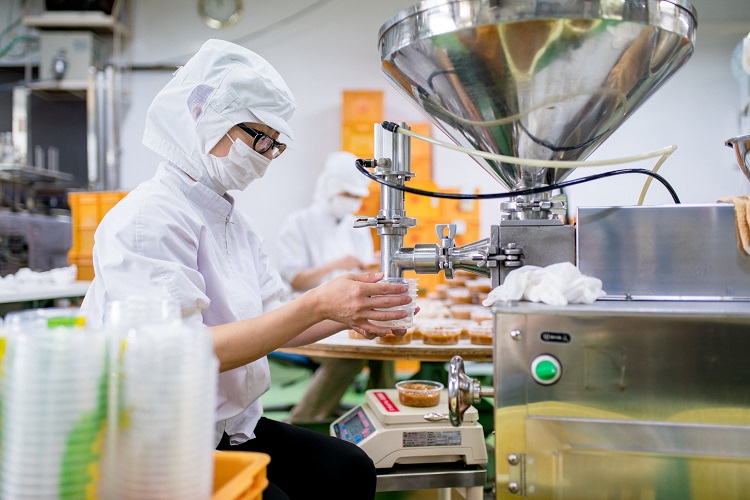3 Trends In the Food Processing Industry

Recently, members from our Manufacturing team attended the ProFood Tech Conference 2019 in Chicago, Illinois. This event helped educate us on some key issues affecting the food processing industry today.
The food processing industry is constantly evolving in response to societal and health trends. Robotics, data, and safety are always hot topics in manufacturing. And while those are also pertinent to the food industry, the actual trends in product preferences and tastes are of utter importance for companies to stay competitive in the marketplace. The top trends the industry is seeing right now are health benefits, global flavors, and sustainability.
Health Benefits
The health benefits trend in food processing refers to food products that cater to people looking to enhance their health through nutrition, including organic, non-GMO, natural, vitamin-fortified, and plant-based food. Consumers are using food to help their bodies heal naturally. For example, probiotic-infused products have become very popular because they enhance digestive health and may improve gut bacteria, helping to aid a person’s entire immune system. In addition to being found in fermented foods such as yogurt, they are now finding their way into bars, cereals, and drinks.
Plant-based products are also becoming increasingly popular to consumers who are trying to eat fresher and cleaner. In fact, plant-based protein sales jumped 24% from 2017 to 2018 (Bloomberg). Popular items include plant-based meat alternatives that still provide a good source of protein. Chickpeas are also becoming very popular and are great for people who have food allergies. Hummus (made from chickpeas) has become a popular alternative for dipping vegetables. Even pizza crust is being made from cauliflower now! People have made the connection that what they put into their body really does have an impact on how they feel and their overall health, so this trend will likely have major lasting power and will continue to impact the industry.
Global Flavors
Global-inspired taste is the second big industry trend for 2019. Cultural influences are coming from Africa, India, Spain, and Asia. These flavors that were once only found in restaurants are making their way into American homes and even some school lunch rooms! The rise of food trucks has played into this trend as well, with many featuring authentic items to customers. Consumers are willing to take risks on their food choices and are looking to introduce their kids to culture by exposing them to different food offerings.
Sustainability
Sustainability is the third important food trend in the industry right now. It is important to consumers that the ingredients in their products are sustainable and ethically procured and produced. “Healthy for the world and healthy for me” is how many people decide what products to purchase. Mars, PepsiCo, Unilever, and Walmart have all announced sustainability pledges Packaging is a big area of concern when it comes to sustainability. We can expect to see recycled ingredients being used, including tomato peels, kelp, and mushrooms. Once again, the plants are taking center stage!
Sources:
- https://www.fooddive.com/news/6-trends-to-impact-the-food-industry-in-2019/544677/
- https://xtalks.com/three-of-the-fastest-growing-trends-in-the-food-industry-1651/
- https://www.dairynutrition.ca/scientific-evidence/roles-on-certain-health-conditions/probiotic-milk-products-and-digestive-health
- https://www.theatlantic.com/health/archive/2019/03/chickpea-products-have-exploded-popularity-us/584956/
- https://www.tysonfoods.com/the-feed-blog/food-trends-2019
- https://www.specialtyfood.com/news/article/top-food-trends-2019/
An insurance company that cares about you and insuring the things you wish to be insured.
Get a Quote> Find an Agent>

